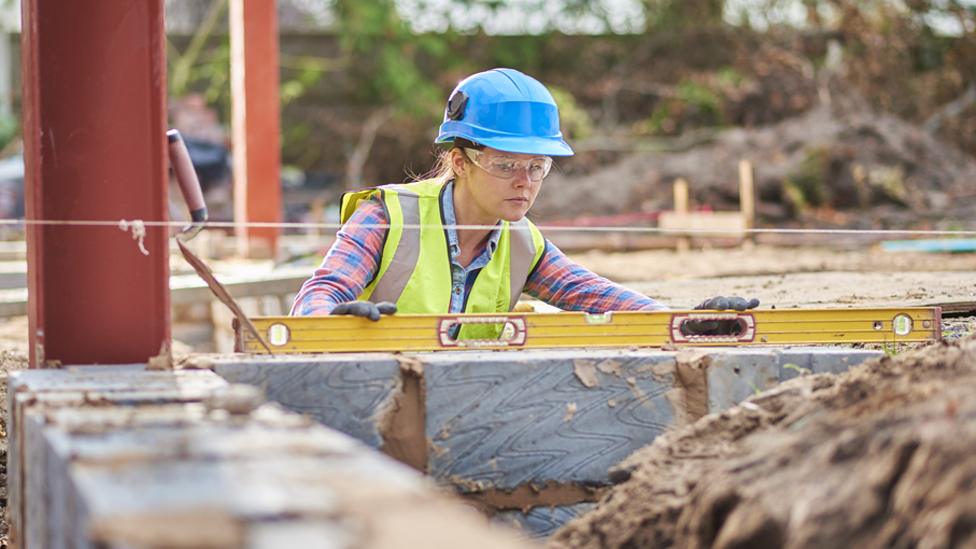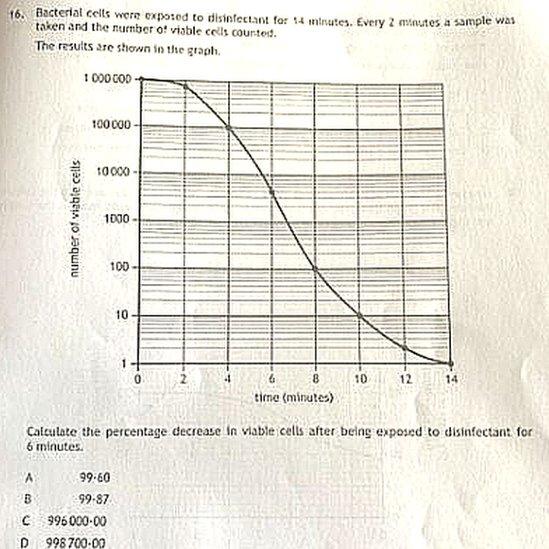Scottish exams: Advice and support as students receive results
- Published
"No matter your exam results, there’s always a path."
Thousands of students across Scotland have been receiving their exam results.
Nearly half of the 133,000 candidates have asked for their results to be sent by email or text message, while the rest were waiting to receive their certificate to arrive in the post later in the day.
Advice and support is available for those who are worried about their results or wondering what to do next.
What happens on results day?

Many pupils will receive their results by text or email
Text messages and emails with results will start to be sent out at 08:00 - although they do not always arrive immediately.
All students will also receive their certificate, external through the post on Tuesday.
The qualifications agency, the SQA, said there were more than 630,000 course entries from the 133,000 candidates.
Students who sat National 5s, Highers and Advanced Highers will find out their results on Tuesday.
Candidates for National 4 qualifications are also receiving their results on Tuesday, although they did not involve formal exams. Students will also get results for National 2 and Skills for Work courses.
What advice is available?
Skills Development Scotland, external (SDS) is running a helpline to provide information for students, parents and carers.
It will be open from 08:00 to 20:00 on Tuesday and Wednesday, then from 09:00 until 17:00 on weekdays until 14 August. The number to call is 0808 100 8000.
Many of the queries tend to be from young people who failed to meet their conditional offers from universities.
However, the helpline can also give advice to those whose marks were better than anticipated.
The #NoWrongPath initiative - which was set up two years ago to highlight how exams results are not always the key to career success - has also created an online portal offering advice and support, external.
A range of online exam advice is also available on the BBC's Bitesize pages.
'Not the end of the world'

Children's charity Childline also has counsellors available to help pupils who are worried about their grades.
Leanne Ferries, Childline's service manager for its Aberdeen base, said: "There can be an incredible pressure for children and young people during the exam period and this can turn to extreme anxiety around results time, especially if their marks don't match up to their expectations or hopes.
"They can often think these exams represent their last chance to make something of their lives, but this is certainly not the case and there are plenty of other options for those who do not get the results they expect or need.
"We would encourage every pupil who has not received the grades they wanted to remain calm and positive, and realise that the results are not the end of the world."
Its advice for students includes:
Don't panic if you do not get the results you were hoping for
It can help to talk to a teacher or someone you trust about how you are feeling about your results
Remember you always have options, and you can get help
Try not to compare your results with those of your friends and classmates
What are my options?

Other options can include modern apprenticeships
Trained SDS advisers have information on options including the university clearing system, college courses and modern apprenticeships.
In general, relatively few places are usually available to Scottish students at Scottish universities through the clearing system.
Most of the places available to Scottish students at Scottish universities will be filled by Tuesday.
But if you miss out, it is still worth looking at the clearing system, external. If you have already applied to university through Ucas, you should log in to your Ucas Track account.
Some of those who miss out on university places this year may get places on college courses.
Some college courses provide direct entry to university, while other students may be able to re-apply to university in the future and gain a place on the strength of their performance at college.
How hard were the exams?

One of the biology questions from Tuesday's papers

In recent years, social media outcries about individual exams have become a regular event.
Sometimes candidates are simply giving voice to their frustrations about tricky or unfamiliar questions, but occasionally - as with the Higher Maths exam in 2015 - they are an early symptom of a serious problem.
This year, some biology candidates expressed disquiet over some aspects of the exam, claiming it included more maths than they had anticipated.
However, Fiona Robertson, chief executive of the SQA, said: "We haven't seen a significant change to the attainment rate at National 5 biology."
Information on the pass mark helps show whether an exam was at the appropriate level of difficulty. The pass mark is often set above or below 50% once papers have been marked to help ensure that standards are consistent from year to year.
If a paper proves harder than anticipated, the pass mark or the marks needed for particular grades will be lowered.
This year saw the pass rate for Highers and Advanced Highers both fall, while it increased for National 5s.
Higher results, in particular, are often scrutinised by those looking for evidence to see whether efforts to raise attainment in schools are working.
Recent years have seen a rise in the number of young people leaving school with at least one Higher.